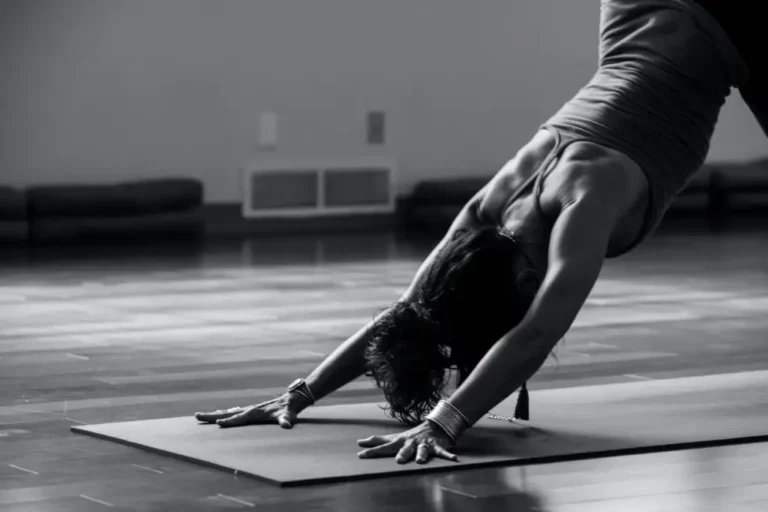Can You Do Yoga Without The Spirituality Aspect?

For many practitioners, a journey into yoga begins with the desire to stretch, strengthen, and tone as a part of an existing exercise routine. Suppose you find yourself in a yoga class that uses Sanskrit terminology and seems to focus more on the spiritual or mystical elements than you are comfortable with. In that case, you may wonder if you can do yoga without the spirituality aspect.
It is possible to do yoga without spirituality. While some purists argue that yoga without a spiritual element is Pilates or stretching, there are many benefits to enjoy when doing yoga, even without spirituality. Unite your mind and body as you work on balance, flexibility, tone, and strength.
If you love the look of yoga but are not keen on engaging with its spiritual element, know that there are ways to enjoy yoga without having to jump all in. Many classes, online and in-person, cater to the non-spiritual among us. Can you get the benefits of yoga without the spiritual aspects? Let’s find out.
Can You Do Yoga Without The Spirituality Aspect?
Yoga is essentially a spiritual practice. The word “yoga” comes from the original Sanskrit word “Yuj,” which means to unite, yoke, integrate, or bind. Yoga was initially designed to help practitioners find the universal connection. To help them experience their intrinsic relationship with their mind, body, and God.
Yoga has eight limbs, all of which are intended to help you gain insight, connectedness, health, and balance in your spiritual and physical life. Of those eight limbs, Yogasanas or physical exercises, and pranayama, breathing techniques, are the two that can be done without an element of spirituality.
If you want to get the full traditional range of benefits from doing yoga, you need to integrate the spiritual aspects of the practice into your life. If you would like to practice yoga for only some of the benefits, especially those that include physical and mental ones, practicing physical poses and breathwork is beneficial too. It is possible to do these without any element of spirituality.
Since many yoga instructors include elements of spirituality in their classes, you should mention your preference for non-spiritual yoga when discussing signing up for classes. The instructor can advise you on classes that suit you or direct you to a more suitable studio.
Learn more about Is Yoga A Religion? Should Christians Practice It?
What Kind Of Yoga Does Not Include Spirituality?
If you are looking for a yoga class that incorporates poses and breathwork but leaves spirituality out of the equation, a few options are available.
Before agreeing to any contracts, chat with the instructor about your spiritual preferences to determine the studio’s policy and whether the instructor has a class that can accommodate you.
Hatha Yoga is the best type for beginners wishing to get the best yoga experience without a spiritual undercurrent. Hatha Yoga includes the body and breathwork that will give you physical and mental benefits from attending classes.
While searching for un-spiritual yoga classes, try yoga classes found in gyms. These are more mainstream than private studio classes and are usually designed to cater to the general public rather than a select spiritual few.
Try yoga classes that do not have traditional Sanskrit names. Instead, try classes like Hot Yoga, Power Yoga, Weight Loss Yoga, or p90x Yoga.
If you want to do yoga at home, try downloading the Downdog app. The app is free if you have a .edu email address, and you can customize aspects of the app to suit your preferences. Modify the type and pace of the music, the instructor’s voice, and more.
Although poses and breathwork can be done without spirituality, your yoga instructor may be inclined to include elements of it, perhaps even without realizing it. If you feel strongly that you would not like any spirituality in your yoga class, try something similar to yoga that is not spiritual at all.Pilates, calisthenics, and stretching classes are all similar to yoga classes and include no spirituality.
How To Do Yoga Without The Spirituality Aspect
Yoga is designed to bring balance to your mind and body. Traditionally, this balance was meant to enable you to reach levels of enlightenment. Still, if you want to do yoga without the spiritual aspect, there are many fantastic ways to use this discipline to support your health and well-being.
Here, we list a few aspects of yoga that benefit your body and mind. Spirituality is not necessary when you are aware of how the practice is helping you, and your focus can remain in the physical realm.
Yoga Poses (Asana)
When doing yoga poses, understand that all poses, balances, bends, twists, etc., are there to develop your body differently. Yoga poses are beneficial for your body in a few different ways. Some of these ways include the following:
- Balance
- Flexibility
- Core strength
- Strength
- Weight loss
- Mobility
- Digestion
- Circulation
While practicing your poses, visualize which muscles are being activated and what parts of your body benefit from your hard work.
You may feel intimidated by the traditional Sanskrit terms for poses. In a non-spiritual or beginner class, the instructor may forego using these terms to help you feel more at ease. If the instructor does use them, know that they are not spiritual in their meaning, simply the terms in a language you do not yet understand.
As you progress in your knowledge and understanding of yoga, you might want to learn the terms’ traditional names.
Can You Do Asanas After Pranayama?
Breathwork
Conscious breathwork is an essential part of many professional disciplines. Sports, performance arts, and psychological practices use breathwork to help with grounding, releasing muscle tension, and increasing energy and circulation.
Deep, conscious breathwork improves the cardiovascular, respiratory, and nervous systems. During your non-spiritual yoga class, use breathwork as an opportunity to energize your muscles and organs as you give them a good workout. It is also an excellent opportunity to practice deep breathing for times of stress in your daily life.
Mindful Awareness Of Your Body
In a world that almost forces us to stop listening to our bodies so that we can keep working when we are exhausted and keep pushing when we are hurt, having a mindful awareness of your body is a vital skill to have, and practicing yoga can help you achieve that.
During a yoga class, you learn to understand when to shift your weight, when to change your point of balance, when to engage certain muscle groups, and when to relax them. You learn when to push a little more and when to pull back.
Understanding your body’s needs is an excellent skill to learn and will serve you well in many areas. It can help you prevent dehydration or overeating, injury, or overworking. Having a deep and mindful awareness and understanding of your body can help you identify illness and possibly also the cause.
Use your yoga practice to learn about your body, how it works, and what you can do with it.
Develop A Laser-Sharp Mindset
Meditation can be performed even in non-spiritual yoga classes. Focusing your mind is a fantastic skill and will serve you well in every area of your life.
Even if your yoga class does not include meditation, using the poses and breathwork within a non-spiritual class to focus your mind can help you gain the kind of focus that will help you at work and in your private life.
During yoga practice, you will likely often be faced with challenges. Questions of why certain poses are scary for you, whether or not you can overcome your fears, how to go about doing that, what your barriers are, your resilience, openness, trust, focus, strength, and more will come into your consciousness.
How you deal with the challenges and overcome them in the class will determine how much you get from the lessons. Classes do not need to be spiritual to be packed with life lessons. You can develop a laser-sharp mindset that can set you up as a champion, on and off the mat.
The best part about working with your mindset in a yoga class is that you will feel a sense of pride in your achievements on the mat. As you overcome physical and mental obstacles in yoga class, your self-knowledge and self-esteem will grow, leading to a more profound sense of self-acceptance and love.
Read my articles Is Yoga Overrated? What You Need To Know and Meditation and Yoga Equals Mindful Yoga
Conclusion
It is possible to do yoga without spiritual elements. Focus on how the poses and breathwork of the yoga class benefit you and use those lessons in your daily life, too. If you wish to stay completely clear of all spirituality, consider trying Pilates, stretch class, or another similar type of exercise instead of yoga. Gym yoga classes typically steer clear of spirituality.






